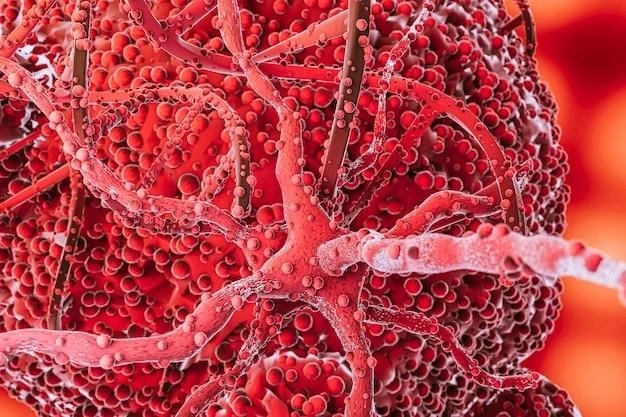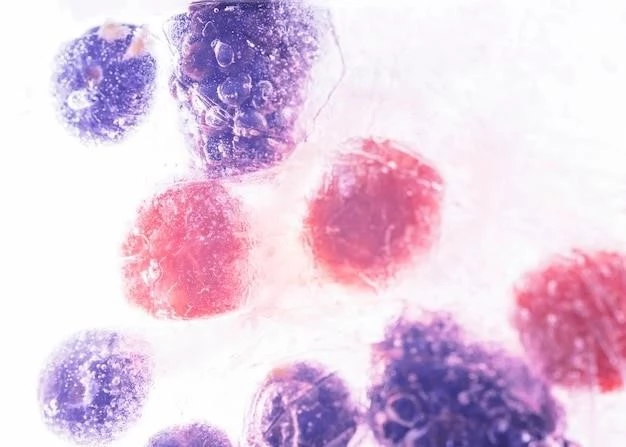Basal Cell Carcinoma⁚ A Comprehensive Guide
Basal Cell Carcinoma is often caused by cumulative sun exposure. Regularly check for new spots or sores that don’t heal. Prompt diagnosis and treatment are key. Consult a dermatologist for proper evaluation and care.
Causes of Basal Cell Carcinoma
Basal Cell Carcinoma is primarily caused by exposure to UV radiation from the sun or tanning beds. Chronic sun exposure‚ especially during peak hours‚ increases the risk. Individuals with fair skin‚ light eyes‚ and a history of sunburns are more susceptible. Genetic factors and exposure to certain chemicals may also play a role. Protect yourself by using broad-spectrum sunscreen‚ wearing protective clothing‚ and avoiding tanning beds. Regular skin examinations can aid in early detection and prevention of Basal Cell Carcinoma.
Symptoms and Diagnosis of Basal Cell Carcinoma

Symptoms of Basal Cell Carcinoma include a pearly or waxy bump‚ a flat‚ flesh-colored or brown scar-like lesion‚ a bleeding or scabbing sore that heals and recurs‚ or a shiny pink‚ red‚ translucent‚ or white bump. If you notice any of these signs‚ consult a dermatologist for evaluation. Diagnosis typically involves a skin biopsy to confirm the presence of Basal Cell Carcinoma. Early detection is crucial for successful treatment outcomes‚ so do not delay seeking medical attention if you suspect any abnormal skin changes.
Treatment Options for Basal Cell Carcinoma
The treatment options for Basal Cell Carcinoma depend on the size‚ location‚ and subtype of the tumor; Common approaches include Mohs surgery‚ excisional surgery‚ radiation therapy‚ cryotherapy‚ and topical medications. Your dermatologist will recommend the most suitable treatment based on the specifics of your case. Early-stage Basal Cell Carcinomas are highly treatable‚ emphasizing the importance of early detection and prompt intervention. Follow your healthcare provider’s advice closely and attend regular follow-up appointments for the best outcome.
Prevention Strategies for Basal Cell Carcinoma
Preventing Basal Cell Carcinoma involves minimizing exposure to UV radiation. Wear protective clothing‚ including wide-brimmed hats and sunglasses‚ and use sunscreen with an SPF of 30 or higher. Seek shade during peak sun hours‚ typically between 10 a.m. and 4 p.m. Avoid tanning beds and sunlamps. Perform regular skin self-examinations and see a dermatologist annually for a full-body skin check. By adopting these preventive measures‚ you can reduce your risk of developing Basal Cell Carcinoma.
Prognosis and Survival Rates of Basal Cell Carcinoma
The prognosis for Basal Cell Carcinoma is excellent when detected early and properly treated. The 5-year survival rate is nearly 100% for localized cases. However‚ if left untreated‚ Basal Cell Carcinoma can invade surrounding tissues and become more challenging to manage. Regular monitoring‚ prompt treatment‚ and sun protection practices are key for a positive prognosis. Keep all follow-up appointments and inform your dermatologist of any new or changing skin lesions for timely intervention and optimal outcomes.
Understanding the Risk Factors of Basal Cell Carcinoma
Several risk factors contribute to the development of Basal Cell Carcinoma. Prolonged and repeated exposure to UV radiation‚ especially without adequate sun protection‚ is a primary risk factor. Fair skin‚ light hair‚ blue or green eyes‚ and a history of sunburns are associated with higher risk. Other risk factors include a weakened immune system‚ certain genetic disorders‚ exposure to arsenic‚ and a family history of skin cancer. Understanding these risk factors can help you take preventive measures and prioritize regular skin screenings with a dermatologist to catch any potential issues early.
Basal Cell Carcinoma in Different Age Groups
Basal Cell Carcinoma can affect individuals of all ages‚ but it is more common in older adults due to cumulative sun exposure over time. Younger individuals can also develop this type of skin cancer‚ especially if they have a history of intense sun exposure or indoor tanning. Regardless of age‚ it’s essential for everyone to prioritize sun protection measures‚ including sunscreen use‚ protective clothing‚ and regular skin checks. If you notice any suspicious changes in your skin‚ consult a dermatologist for evaluation‚ regardless of your age.
Research and Innovations in Basal Cell Carcinoma Treatment
Ongoing research continues to explore innovative treatment options for Basal Cell Carcinoma. Advances in targeted therapies‚ immunotherapies‚ and photodynamic therapy show promise in treating advanced cases. Clinical trials are investigating new drugs and techniques to improve outcomes and reduce side effects. Stay informed about new developments in Basal Cell Carcinoma treatment by discussing with your healthcare provider and exploring participation in research studies if suitable. It’s essential to be proactive in exploring all available options for the most effective treatment approach tailored to your specific condition.
